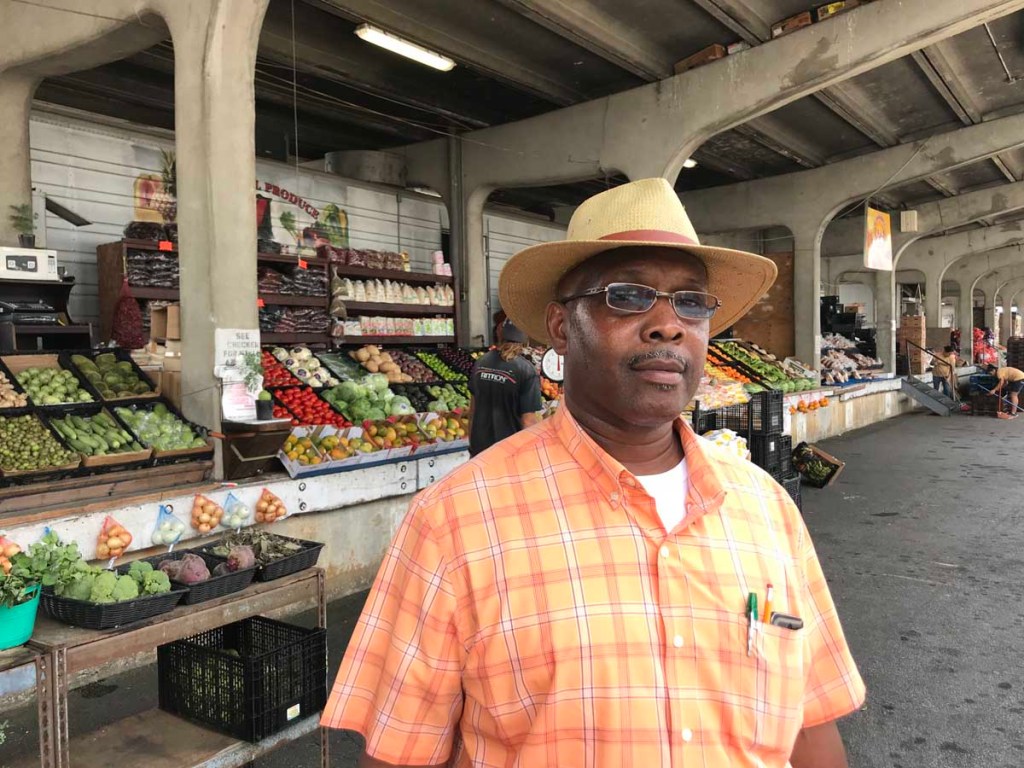Panel hopes to revamp state farmers markets
Published 7:49 pm Saturday, August 18, 2018

- Keith Parker, a Clayton County farmer who grew up in Brooks County, says he wants to sell his produce at the Atlanta State Farmers Market, but he wants other local farmers to join him.
FOREST PARK, Ga. — A push to revamp the massive Atlanta State Farmers Market could have an impact on other state-owned facilities in south Georgia.
That main market, which is located just south of the capital city in Forest Park, is a sprawling campus that helps Georgia peaches, sweet onions and other produce find their way to restaurants, stores and other businesses throughout the South and beyond.
But to the chagrin of local residents, much of the farmers market’s focus today is on the wholesale side of the produce business. That means many of the Georgia-grown fruits and veggies that come this way end up being sold in mass quantity, and the distribution hub has acres of cooler space, with more being added.
“We call it the Southeast’s refrigerator,” said Matthew Kulinski, deputy director of the state Department of Agriculture’s marketing division.
On Thursday, the campus was crawling with tractor-trailer traffic. There was still plenty of produce for sale in the outdoor markets, but only a small amount appeared to be in-season Georgia fruits and vegetables.
That’s why residents are calling on state lawmakers to restore the focus on the locally grown produce that they recall from many years ago and to make the market the community amenity and educational resource for children that they say it once was.
“I still bring my children here to get our pumpkins, Christmas trees, roses and flowers,” said Hannah Palmer, who grew up in Forest Park. “And I’ve been saddened over the last few years to see the things that I love about the market on the decline.”
Rep. Valencia Stovall, D-Forest Park, also grew up going to the market. The challenge today, she said, is figuring out how to encourage local growers to access the market in what is now a highly regulated industry.
“I know it’s not going to be exactly how it used to be, but I think there are some portions we can bring back,” Stovall said.
The state’s agriculture leaders, though, say the produce industry has changed dramatically. Gone are the days when farmers would drive up in their campers and hang around for weeks to sell their entire crop, said Gary Black, the state’s agriculture commissioner.
“There will always be a place on this market for Georgia farmers. Always,” Black said. “That’s the mission. We don’t abandon the mission. But you change some of the furniture in the room, which is what you’re finally seeing out here.”
Stovall is chairing a legislative study group that is looking at ways to revitalize the aged Atlanta market. She said some of the ideas that come out of the committee could be replicated on a smaller scale at the state’s other markets, including in Valdosta, Moultrie and Thomasville. The panel met for the first time Thursday.
The state established the markets in 1935, but some of the remaining nine markets are struggling because of declining demand from farmers and customers, according to a state audit released earlier this year. The Atlanta market, though, remains profitable.
There are also fewer small growers in Georgia today. And other options exist for them, including community farmers markets, community-supported agriculture, produce brokers and pick-your-own operations or farm stands.
Kulinski, with the department of agriculture, said Thursday that there was no plan to close any of the markets, which the audit suggested as a consideration. He said if the study group can find ways to increase capacity of the Atlanta market, then that might in turn help the state’s other markets.





